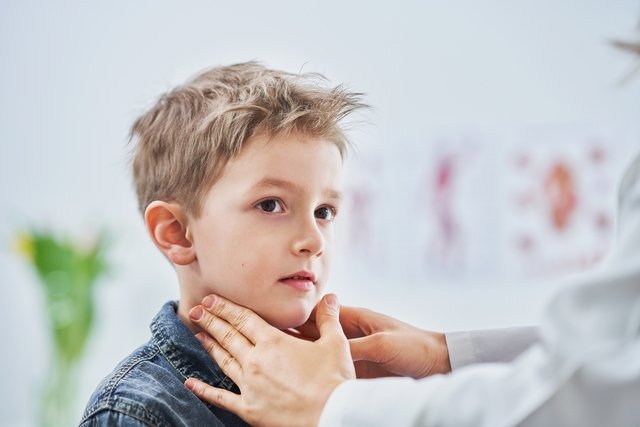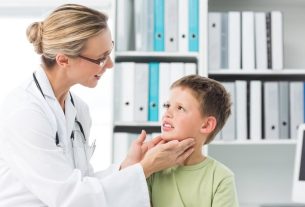Treatment for mumps aims to promote symptom relief, as there is no specific treatment and, for this, the doctor may recommend the use of medications such as paracetamol or ibuprofen to reduce pain and fever, in addition to rest, hydration and softer and more pasty food.
As it is not necessary to carry out specific treatment, the person can stay at home, however, if signs of worsening are identified, such as vomiting, nausea, increased fever and more intense headache, it is important that the doctor is consulted so that it can be carried out. a new assessment.
Mumps, also known as mumps or infectious parotitis, is an infectious disease caused by a virus that can be easily transmitted through inhalation of droplets that remain suspended in the air after an infected person sneezes, coughs or speaks. Generally, mumps causes symptoms such as an increase in volume of one or more salivary glands, pain, fever and general malaise. Know how to recognize the symptoms of mumps.

Treatment for mumps aims to alleviate symptoms and improve the person’s quality of life, and is recommended:
1. Taking medicine
Medications such as Acetaminophen, Ibuprofen, Prednisone or Tylenol can be used to relieve pain, fever and inflammation throughout the recovery period. In addition, the medicines also help to alleviate any discomfort or pain in the face, ears or jaw that may exist.
2. Rest and hydration
Getting plenty of rest for the body to recover and drinking lots of water, tea or coconut water, is also very important for recovery, helping to prevent dehydration. During recovery, it is important to avoid acidic drinks, such as some fruit juices, for example, as they can end up irritating the glands that are already inflamed.
3. Soft and pasty food
It is recommended, throughout recovery, that the person has a liquid and soft diet, as chewing and swallowing can be made difficult by the swelling of the salivary glands. Therefore, during this period it is recommended to eat liquid and pasty foods such as oat porridge, vegetable cream, mashed potatoes, well-cooked rice, scrambled eggs or well-cooked beans, for example, in addition to being important to avoid acidic foods such as citrus fruits, as they can cause irritation.
4. Perform oral hygiene regularly
After eating, it is always recommended that you practice strict oral hygiene to prevent the emergence of other infections. Therefore, it is recommended that you brush your teeth as best as possible and use mouthwash whenever possible.
Furthermore, gargling with warm salt water regularly is also a great option, as it not only helps to clean the mouth and prevent infections, but also helps to reduce irritation and inflammation, accelerating healing.
5. Apply warm compresses to the swelling
Applying warm compresses several times a day to the enlarged (swollen) area helps reduce swelling and discomfort. To do this, you just need to moisten a compress in warm water and apply it to the swollen area for 10 to 15 minutes.
Generally, in adults, recovery time varies between 16 and 18 days, with this being shorter in the case of children, which lasts between 10 and 12 days. This is a disease that does not always show symptoms from the beginning, as it can have an incubation period of 12 to 25 days after infection.
Signs of improvement
Signs of improvement in mumps usually appear between 3 and 7 days after symptoms appear and include a reduction in pain and swelling in the face, a reduction in fever and a greater feeling of well-being.
Signs of worsening
Signs of worsening may begin to appear 3 days after starting treatment, and may include symptoms such as pain in the intimate region, intense vomiting and nausea, increased fever and worsening of headaches and body aches. In these cases, it is recommended that you consult a general practitioner as soon as possible, to avoid other more serious complications such as meningitis, pancreatitis, deafness or even infertility.
Furthermore, to efficiently protect yourself against this disease, it is recommended to take the attenuated mumps vaccine and avoid contact with other infected individuals and take it. When it comes to children, they can receive the triple viral vaccine, which protects the body against common infectious diseases, such as mumps, measles and rubella, or the tetravalent viral vaccine, which protects against measles, mumps, rubella and chickenpox.

Sign up for our newsletter and stay up to date with exclusive news
that can transform your routine!
Warning: Undefined array key "title" in /home/storelat/public_html/wp-content/plugins/link-whisper-premium/templates/frontend/related-posts.php on line 12
Warning: Undefined array key "title_tag" in /home/storelat/public_html/wp-content/plugins/link-whisper-premium/templates/frontend/related-posts.php on line 13


